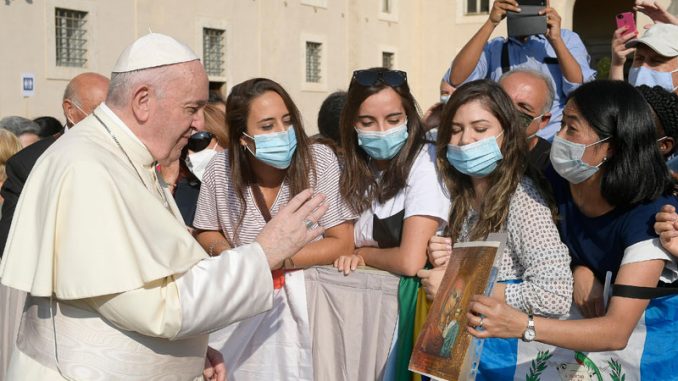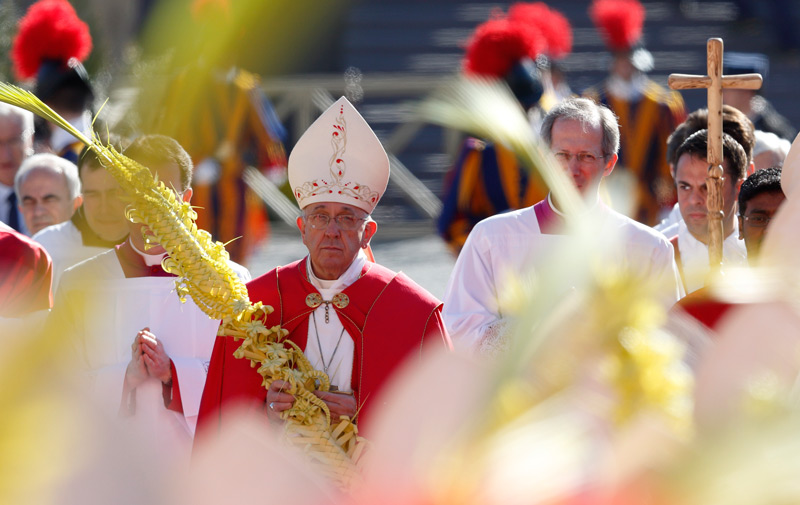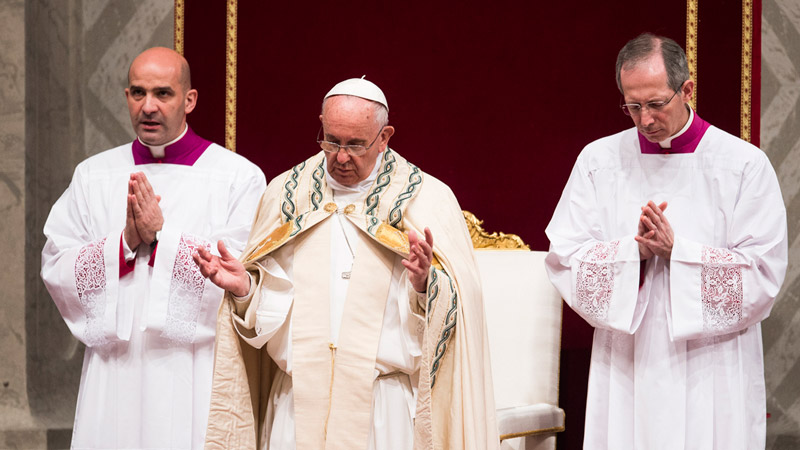
VATICAN CITY—Continuing his catechesis on the current pandemic in the light of the Church’s social doctrine, the pope stressed the importance of caring for each other and contemplating the world in which we live.
“Contemplating and caring: these are two attitudes that show the way to correct and rebalance our relationship as human beings with creation,” Pope Francis said at his weekly General Audience Sept. 16 in the Courtyard of San Damaso.
Speaking to the faithful gathered on Wednesday, the pope stressed that in order to come through this pandemic it is necessary to “to look after and care for each other.”
“We must support those who care for the weakest, the sick and the elderly,” he said, because they “play a vital role in today’s society, even if they often do not receive the recognition and remuneration they deserve.”
This care, Pope Francis went on to say, “must also address our common home.”
“All forms of life are interconnected”, he continued, “and our health depends on that of the ecosystems that God created and entrusted to us to care for … The best antidote against the misuse of our common home is contemplation.
He added that without contemplation “it is easy to fall prey to an unbalanced and superb anthropocentrism, which gives excessive importance to our role as human beings, positioning us as absolute rulers of all other creatures.”
Pope Francis went on to say, “A distorted interpretation of biblical texts on creation has contributed to this misinterpretation, which leads to the exploitation of the earth to the point of suffocating it.”
“We believe that we are at the center, claiming to occupy God’s place; and so we ruin the harmony of His design. We become predators, forgetting our vocation as custodians of life,” he said.
The earth needs to be worked, so as to live, the pope noted, but it must not be exploited. Instead, our mission is to care for our common home.
“Our poorest brothers and mother earth lament for the damage and injustice we have caused, and demand we take another course.”
Therefore, the pope underlined, it is important to recover the contemplative dimension.
When we do this, Pope Francis explained, people discover the intrinsic value of things given to them by God.
Speaking in off the cuff remarks, the pope said that those who do not know how to contemplate nature and creation do not know how to contemplate people in all their richness. And those who exploit nature end up exploiting people and treating them like slaves.
“This is a universal law,” he said. “Those who know how to contemplate will more easily set to work to change what produces degradation and damage to health. They will strive to educate and promote new production and consumption habits, to contribute to a new model of economic growth that guarantees respect for our common home.”
Those who follow the path of contemplation and caring, emphasized the pope, “become ‘guardians’ of our common home, guardians of life and hope.” This is needed in order to preserve and protect our common home for future generations.
In particular, he mentioned the indigenous peoples to whom, he said, “we all owe a debt of gratitude.”
Recalling a Spanish proverb, the pope also cautioned that exploiting creation brings costly consequences because “God always forgives; we forgive sometimes; (but) nature never forgives.”
Citing a recent report that the Pine Island and Thwates glaciers in Antarctica are collapsing due to global warming, Pope Francis said the consequential rising sea levels will bring terrible consequences, and he called on people to “guard the inheritance God has entrusted to us so that future generations can enjoy it.”
Concluding his catechesis, Pope Francis stressed that everyone has a role to play in caring for creation.
“Each one of us can and must become a guardian of the common home, capable of praising God for His creatures (by) contemplating them and protecting them,” the pope said.
By Vatican News
Junno Arocho Esteves, Catholic News Service, contributed to this report.



